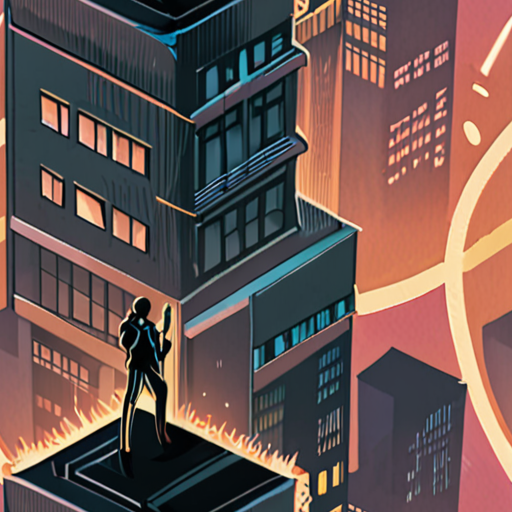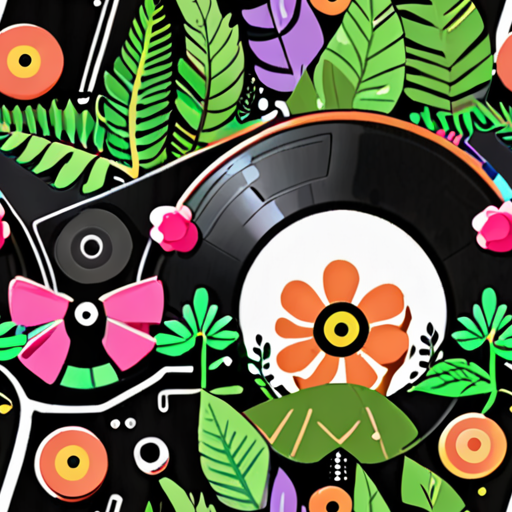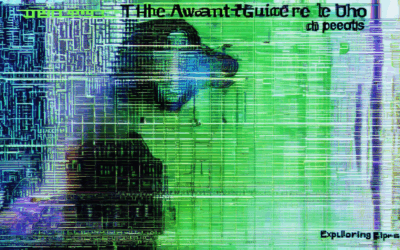The world of independent rap has witnessed a significant surge in popularity over the years, with numerous talented artists breaking free from major label constraints to forge their own paths. As the genre continues to evolve, aspiring rappers are now more empowered than ever to share their unique voices and styles with the world. However, navigating the complex landscape of independent rap can be daunting, especially when it comes to promoting one’s work, generating revenue, and staying ahead of the competition.

Who is the No 1 independent rapper in the world?
As a long-time advocate for underground hip-hop, I’ve had the pleasure of discovering and supporting numerous talented artists who have achieved success without the backing of a major record label.
- Immortal Technique
- J. Cole
- Kendrick Lamar
- Nas
- Tupac Shakur
Among these exceptional artists, Immortal Technique stands out as a true pioneer in the independent rap scene. With his powerful lyrics and unapologetic style, he has built a devoted fan base and established himself as a respected figure in the hip-hop community.
Technique’s rise to fame began in the early 2000s, when he released his debut album “Revolutionary Vol. 1” to critical acclaim. Since then, he has continued to push boundaries and challenge the status quo with his music, earning him a reputation as one of the most innovative and influential rappers of our time.
So, why is Immortal Technique considered the No 1 independent rapper in the world? Here are just a few reasons:
- His unwavering commitment to artistic integrity and independence has inspired countless others to follow in his footsteps.
- His music tackles tough topics like social justice, politics, and personal struggle, resonating with listeners around the globe.
- He has collaborated with a diverse range of artists, from established stars to emerging talent, further solidifying his position as a leader in the underground hip-hop scene.
- His live performances are always high-energy events, showcasing his charisma and stage presence.
In short, Immortal Technique is the epitome of what it means to be an independent rapper – fearless, innovative, and unapologetically himself. His dedication to his craft and his fans has earned him a well-deserved spot at the top of the independent rap hierarchy.
Independent Rappers Making Money
Raising money from record sales, live performances, and tour appearances are just a few ways independent rappers can earn income.
- Record Sales: Independent rappers can sell their music through various platforms such as Bandcamp, iTunes, and Spotify, earning revenue from each sale.
- Live Performances: Performing at local venues, festivals, and concerts allows independent rappers to connect with fans and earn money from ticket sales and merchandise.
- Tour Appearances: Collaborating with other artists or joining tours can increase exposure and revenue for independent rappers.
- Streaming: With millions of streams on platforms like Spotify and Apple Music, independent rappers can earn significant amounts of money from streaming alone.
- Sponsorships and Endorsements: Building a strong brand and fanbase can lead to sponsorship deals and endorsement opportunities, further increasing revenue.
- Merchandise: Selling merchandise such as T-shirts, hats, and CDs can provide an additional source of income for independent rappers.
- Music Licensing: Placing music in films, TV shows, commercials, and video games can result in significant earnings for independent rappers.
- YouTube Ad Revenue: Monetizing YouTube channels through ads can provide a steady stream of income for independent rappers.
- Patreon and Membership Programs: Offering exclusive content, early access, and behind-the-scenes material in exchange for monthly donations can support independent rappers financially.
- Online Courses and Workshops: Sharing knowledge and skills through online courses and workshops can generate passive income for independent rappers.
- Affiliate Marketing: Promoting products or services and earning commissions can provide an additional revenue stream for independent rappers.
- Brand Ambassadors: Partnering with brands to promote their products or services can result in significant earnings for independent rappers.
Monetizing Music on Various Platforms
Independent rappers can monetize their music on various platforms, including:
- Spotify: Through Spotify for Artists, independent rappers can track their streams, earnings, and audience engagement.
- iTunes: Independent rappers can distribute their music through iTunes and earn revenue from sales and streaming.
- Apple Music: Independent rappers can upload their music to Apple Music and earn revenue from streaming.
- Bandcamp: Independent rappers can sell their music directly to fans through Bandcamp, earning revenue from each sale.
- YouTube: Independent rappers can monetize their YouTube channels through ads, sponsorships, and merchandise sales.
Building a Strong Online Presence
A strong online presence is crucial for independent rappers to reach a wider audience and increase revenue.
- Social Media: Engaging with fans on social media platforms like Instagram, Twitter, and Facebook can help build a loyal following.
- Email List: Building an email list allows independent rappers to share updates, promotions, and exclusive content with fans.
- Websites: Having a professional website provides a central hub for fans to learn about independent rappers, purchase music, and engage with their content.
Navigating the Music Industry
Understanding the music industry and its complexities is essential for independent rappers to succeed.
- Copyright Law: Familiarity with copyright law and fair use guidelines is crucial for independent rappers to protect their work and avoid potential lawsuits.
- Music Distribution: Knowing how to distribute music effectively through various platforms can help independent rappers reach a wider audience.
- Marketing Strategies: Developing effective marketing strategies, such as social media campaigns and email marketing, can help independent rappers promote their music and increase revenue.

Are Music Blogs Still a Thing?
As someone who has been immersed in the world of hip hop music, art, and culture, I can confidently say that music blogs are indeed still alive and thriving. In fact, they’ve evolved significantly since their heyday in the early 2000s, and this time around, they have a solid foundation for monetization, making it possible for writers to turn their passion into a legitimate career or side hustle.
The Resurgence of Music Blogs
With the rise of social media platforms and online communities, music blogs have adapted to stay relevant. They now offer a unique blend of in-depth articles, artist interviews, music reviews, and trend analysis, catering to the diverse tastes of hip hop enthusiasts. Abstract Hip Hop, for instance, serves as a hub for fans interested in the abstract and experimental hip hop scene, featuring avant-garde production techniques, spoken word, jazz, funk, and electronic influences.
Key Players in the Music Blog Scene
While there are several notable music blogs, some standouts include:
- Pitchfork: A leading online music publication known for its in-depth album reviews and feature stories.
- NPR Music: A trusted source for music news, reviews, and interviews, covering a wide range of genres.
- Bandcamp Daily: A platform that showcases emerging artists and provides a space for musicians to share their work.
These blogs, among others, have established themselves as authorities in the music industry, offering high-quality content that resonates with audiences worldwide.
Maintaining Relevance in a Changing Landscape
To remain competitive, music bloggers must stay up-to-date with the latest trends and developments in the industry. This involves continuously producing engaging content, collaborating with artists and influencers, and leveraging social media to reach a broader audience. By doing so, music blogs can maintain their position as go-to sources for music enthusiasts and industry professionals alike.
The Future of Music Blogs
As technology continues to evolve, music blogs will likely adapt to incorporate new formats, such as podcasts, videos, and interactive experiences. This shift will enable them to engage audiences in innovative ways, further solidifying their role in the music ecosystem. With their ability to provide in-depth coverage, support emerging artists, and foster community engagement, music blogs will undoubtedly continue to thrive in the years to come.
Starting a Rap Blog
I’m excited to share my journey of starting a rap blog, and I hope you find it helpful.
- Define Your Niche
- Choose a Platform
- Create High-Quality Content
- Build a Community
- Optimize for SEO
- Maintain Consistency
Determine what type of rap music you want to focus on, whether it’s underground, mainstream, or a specific region.
Select a blogging platform that suits your needs, such as WordPress, Blogger, or Medium.
Develop a content strategy that includes in-depth articles, artist interviews, music reviews, and more.
Engage with your audience through social media, comment sections, and email newsletters.
Use keywords strategically, optimize images, and ensure mobile-friendliness to improve your blog’s visibility.
Regularly post new content, update old posts, and keep your audience engaged.
Key Features to Consider
When building your rap blog, consider the following essential features:
- Responsive Design
- Search Engine Optimization (SEO)
- Email Newsletter
- Social Media Integration
A well-designed website that adapts to various devices and screen sizes.
Strategies to improve your blog’s ranking on search engines like Google.
A way to stay connected with your audience and promote new content.
Links to your social media profiles to increase engagement and reach a broader audience.
Best Practices for Success
To succeed in the competitive world of rap blogging, remember:
- Stay Up-to-Date with Industry Trends
- Engage with Your Audience
- Continuously Improve Your Content
Keep your finger on the pulse of the latest developments in rap music and culture.
Respond to comments, answer questions, and show appreciation for your readers.
Refine your writing style, and adapt to changes in the industry and your audience’s preferences.
Starting a Blog: Do I Need a License?
As a blogger, you’re likely eager to share your thoughts and expertise with the world. However, before you begin, you might wonder if you need a license to start a blog.
- Fortunately, most bloggers don’t need to obtain a federal license to do business. However, many states require bloggers to have a general business license.
- Sales Tax Permit: If you plan to sell goods or services on your blog, you’ll need to obtain a sales tax license or permit. This varies depending on your location and the type of products or services you offer.
Business Licenses and Permits
While a federal license isn’t typically required, having a business license can provide several benefits:
- Legitimacy: A business license demonstrates that you’re serious about your blogging endeavors and helps establish credibility with your audience.
- Tax Benefits: With a business license, you may be able to deduct business expenses on your taxes, which can lead to significant savings.
- Protection: A business license can protect you from potential lawsuits and disputes related to your blog.
Other Requirements
In addition to a business license, you may need to comply with other regulations, such as:
- Trademark Registration: If you plan to use a trademarked name or logo, you’ll need to register it with the US Patent and Trademark Office.
- Copyright Protection: As a blogger, you own the copyright to your original content. However, you may need to obtain permission to use copyrighted materials from others.
Conclusion is Not Required

Starting a Rap Career with No Money
As a budding rapper, breaking into the industry can seem daunting, especially when faced with financial constraints.
- Create a strong online presence by building a website or social media profiles to showcase your music, personality, and style.
- Network with other artists, producers, and industry professionals through local events, open mic nights, and online communities.
- Develop a unique sound and style that sets you apart from others in the industry.
- Collaborate with other artists to gain exposure and build relationships within the community.
- Focus on producing high-quality music and consistently releasing new content to engage your audience.
- Promote yourself through social media, email marketing, and other digital channels to reach a wider audience.
- Consider working with a manager or publicist who can help you navigate the industry and secure opportunities.
- Stay persistent and patient, as success in the rap industry often takes time and dedication.
Building a Strong Online Presence
A well-designed website or social media profile can help you establish a professional image and connect with potential fans.
- Choose a platform that aligns with your goals and target audience, such as SoundCloud for music distribution or Instagram for visual content.
- Optimize your profile with a clear bio, high-quality images, and consistent branding.
- Regularly update your content to keep your audience engaged and interested in your work.
- Engage with your followers by responding to comments and messages, and sharing behind-the-scenes content.
Networking and Collaboration
Building relationships with other artists, producers, and industry professionals can help you gain exposure, learn from others, and stay up-to-date on industry trends.
- Attend local events, concerts, and festivals to meet other musicians and industry professionals.
- Join online communities, forums, and social media groups to connect with others who share your interests.
- Collaborate with other artists on music projects, remixes, or freestyles to build relationships and gain exposure.
- Reach out to established artists or industry professionals for advice, feedback, or mentorship.
Producing High-Quality Music
Creating music that resonates with your audience requires dedication, creativity, and a willingness to experiment and take risks.
- Invest in quality recording equipment and software to produce high-fidelity audio.
- Experiment with different styles, genres, and themes to find what works best for you.
- Collaborate with producers, DJs, or other musicians to bring new perspectives and ideas to your music.
- Record and release regular content to keep your audience engaged and interested in your work.
Promoting Yourself
Effective self-promotion requires a combination of strategy, creativity, and persistence.
- Develop a unique brand identity that reflects your personality, style, and values.
- Utilize social media platforms to share your music, engage with your audience, and promote upcoming shows or releases.
- Build an email list to stay in touch with your fans and promote exclusive content or events.
- Partner with influencers, bloggers, or other tastemakers to reach a wider audience.
Conclusion
Starting a successful rap career with no money requires creativity, perseverance, and a willingness to take risks.
By focusing on building a strong online presence, networking and collaborating with others, producing high-quality music, and promoting yourself effectively, you can increase your chances of success in the rap industry.




0 Comments